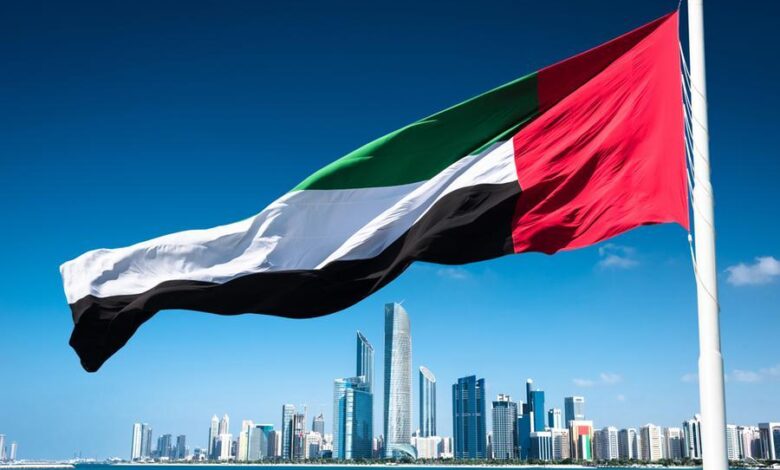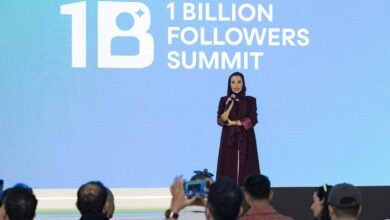
The UAE Thrives: How Big is UAE in Today’s Chaotic World?
In today’s chaotic world, the United Arab Emirates has emerged as a beacon of stability and progress. The UAE, a tiny country on the Arabian Peninsula, has grown from a collection of desert settlements to a global powerhouse in just a few decades. This rapid transformation has led many to wonder: how big is UAE’s influence on the world stage? From its glittering skyscrapers in Dubai to its role in regional diplomacy, the UAE has an outsize impact that belies its small size.
The UAE’s rise has been marked by its development as a global business hub, its cultural diplomacy efforts, and its growing influence in regional and international affairs. This article explores the Emirates’ contributions to global trade and logistics, its financial sector innovation, and its commitment to sustainability. It also examines the UAE’s social progress, quality of life improvements, and ambitious plans for the future, offering insights into how this pragmatic nation has positioned itself as a key player in an increasingly complex world order.
The UAE’s Rise as a Global Business Hub
The United Arab Emirates has become a beacon for global business, with Dubai leading the charge. Its strategic location between East and West provides access to over 2 billion consumers within a four-hour flight radius. The UAE’s robust economy, with a GDP exceeding AED 1468.85 billion, offers diverse opportunities across finance, tourism, technology, and renewable energy sectors. World-class infrastructure, including state-of-the-art airports and ports, supports seamless business operations. The country’s pro-business policies, such as zero-tax incentives and easy-to-navigate regulations, have resulted in a high ranking on the ‘Ease of Doing Business’ index.
Cultural Diplomacy and Soft Power Projection
The UAE has positioned itself as a cultural powerhouse, investing billions in cultural enterprises to boost tourism, economic growth, and national pride. The Saadiyat Cultural District in Abu Dhabi exemplifies this commitment, with the Louver Abu Dhabi opening in 2017 as part of a AED 99.15 billion development project. The UAE’s National Strategy for Cultural and Creative Industries, launched in 2021, aims to increase the sector’s contribution to 5% of GDP by 2031. This strategy focuses on strengthening the UAE’s position on the global cultural map and attracting creative talents worldwide. The country’s participation in international events, such as the Venice Biennale, further showcases its dedication to promoting Arab art and fostering cross-cultural understanding.
UAE’s Role in Regional Stability and Security
The UAE has emerged as a key player in promoting regional stability and security. With a strong commitment to combating terrorism, the country has adopted a multifaceted approach. The UAE actively participates in international coalitions against extremist groups like ISIS, Al-Qaeda, and others. It has established defense and military relations with several African states, focusing on counterterrorism efforts and capacity-building. The country has also taken steps to prevent radicalization through moderation of religious discourse and comprehensive educational initiatives. Additionally, the UAE has made significant contributions to humanitarian aid and development assistance, particularly in conflict-affected regions like Yemen and Sudan.
Environmental Leadership and Sustainability Efforts
The UAE has positioned itself as a leader in environmental sustainability, implementing ambitious initiatives to combat climate change and promote green development. The country has set a target to reduce greenhouse gas emissions by 31% by 2030, showcasing its commitment to global climate action. Key projects like Masdar City, a pioneering sustainable urban development, demonstrate the UAE’s innovative approach to eco-friendly living. The nation has also made significant strides in renewable energy, with solar power playing a crucial role in its energy mix. These efforts align with the UAE’s vision for a sustainable future and its role as host of COP28 in 2023.
UAE’s Financial Sector Growth and Innovation
The UAE has emerged as a regional and global fintech hub, with its market estimated at AED 144.31 billion in 2023 and projected to grow at a CAGR of over 15% until 2028. The country ranks as the premier fintech hub in the Middle East and Africa, accounting for 46% of fintech startups, 47% of funding deals, and 69% of all fintech funding in the MENA region. This growth has been fueled by a developed entrepreneurial culture, investment openness, and substantial government support. The UAE’s large expatriate population has also driven innovation in financial services, particularly in cross-border remittances and products for the unbanked.
The Emirates’ Influence on Global Trade and Logistics
The UAE has positioned itself as a global trade and logistics powerhouse, leveraging its strategic location and world-class infrastructure. Abu Dhabi International Airport, one of the fastest-growing aviation hubs globally, is undergoing a major expansion to increase its annual passenger capacity from 14 million to 45 million by 2030. The Midfield Terminal Complex, a 700,000-square-meter facility with 65 gates, exemplifies the UAE’s commitment to enhancing its air transportation capabilities. Dubai’s Al Maktoum International Airport is also expanding, aiming to handle 26.5 million passengers annually. These developments, coupled with the UAE’s membership in the World Trade Organization and its numerous trade agreements, underscore the nation’s growing influence on global trade and logistics.
Social Progress and Quality of Life in the UAE
The UAE has made significant strides in enhancing the quality of life for its residents. The country has built an impressive health infrastructure, including hospitals, clinics, and diagnostic laboratories, providing comprehensive healthcare services. The transition from public to private sector healthcare has been led by private investment and insurance provision, with the current split at 65/35 percent in favor of the private sector. Collaborations with global brands like Cleveland Clinic and Mayo Clinic have elevated care to international standards, improving quality and fostering medical tourism. The UAE is also investing heavily in health science and technology, tripling its research capacity in recent years.
UAE’s Vision for the Future: Ambitious Projects and Plans
The UAE continues to push boundaries with ambitious projects that shape its future. Dubai’s Ciel Tower, set to be the world’s tallest hotel at 365 meters, is scheduled for completion in 2024. The Jumeirah Marsa Al Arab, with its superyacht-inspired design, will join Dubai’s iconic skyline. Abu Dhabi’s Hudayriyat Island master plan promises new residential communities and extensive sports facilities. The Etihad Rail network, completed in 2023, spans 900km across the country, reducing carbon emissions by up to 21%. These projects, along with initiatives in renewable energy and urban development, showcase the UAE’s commitment to innovation and sustainable growth in the coming years.
The United Arab Emirates has proven itself to be a major player on the global stage, punching well above its weight in various spheres. Its transformation from a cluster of desert settlements to a thriving hub of commerce, culture, and innovation is nothing short of remarkable. The UAE’s influence extends far beyond its borders, shaping regional dynamics and contributing to global conversations on trade, sustainability, and technological advancement.
Looking ahead, the UAE seems poised to continue its upward trajectory. Its commitment to diversifying its economy, investing in cutting-edge technologies, and fostering a vibrant cultural scene sets the stage for further growth and influence. As the world grapples with complex challenges, the UAE’s pragmatic approach and forward-thinking vision position it as a key player in shaping the future of the Middle East and beyond.







[…] The strategic location of the UAE along ancient trade routes has reshaped the food scene into an array of flavors and techniques. The region has absorbed countless culinary influences since the fifth century. It served as a vital stopover on silk and spice routes while keeping its unique identity. […]
[…] programs stand out remarkably. Ten Emirati artists can now connect with global artisans at the Venice Biennale through the Emirati Creatives in Venice Program. The Etihad Museum Research Grant […]
[…] region’s strategic location helped build extensive maritime trade networks. Ancient Sumerians knew the local […]
[…] Sustainability and cultural preservation remain central themes […]
[…] attended this remarkable event. The tournament featured 11 intense matches with fighters from the UAE, Russia, Ireland, and the USA. This pioneering event was part of the Professional Fighters […]
[…] The UAE‘s CEPA agreement program stands as a driving force in global trade. The program will secure 26 mutually beneficial alliances with major international markets by Q1 2025. Five new agreements were signed in 2025 with Malaysia, New Zealand, Kenya, Ukraine, and the Central African Republic. […]